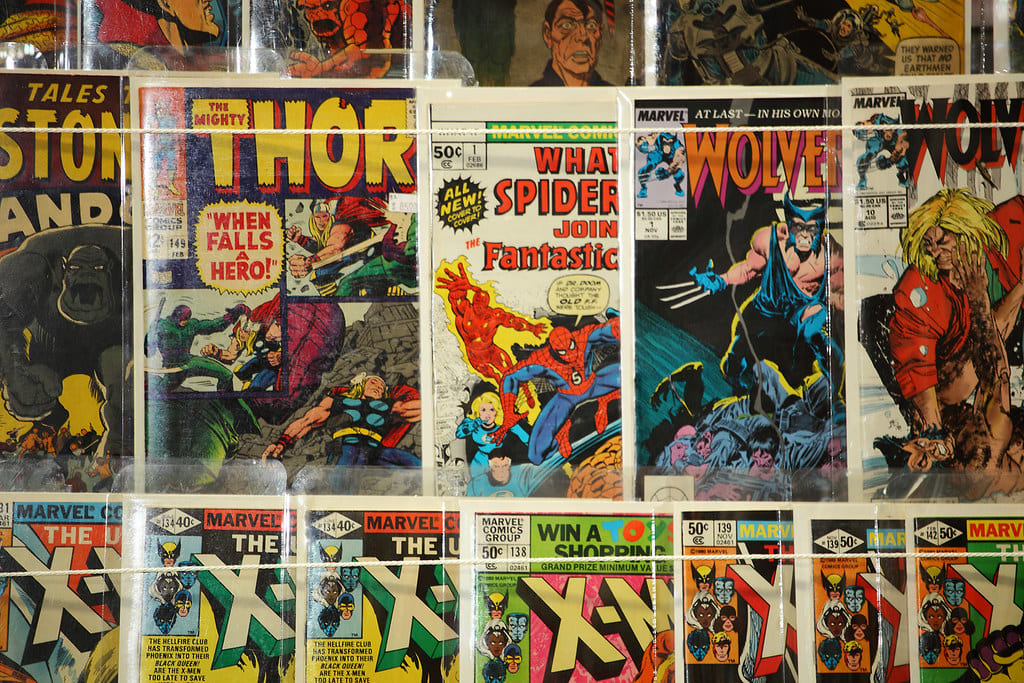When Comics Stood Out?
Comics have come a long way since they first appeared in the 1930s. During their early years, comics were often associated with lowbrow entertainment – something that children and teenagers read for fun.

Comics have come a long way since they first appeared in the 1930s. During their early years, comics were often associated with lowbrow entertainment – something that children and teenagers read for fun. However, in the mid-1980s, something incredible happened – comics began to be taken more seriously by critics and artists alike. This period – known as 'When Comics Stood Out' – marked the beginning of a new era for comics.
The comic book industry underwent a significant transformation in the mid-1980s, starting with Alan Moore's landmark graphic novel, Watchmen, in 1986. Perhaps more than any other work, Watchmen marked the beginning of a new era, one where comics were no longer seen as juvenile or lowbrow. Instead, comics were starting to be recognized as a legitimate art form, with powerful stories and complex characters. Alan Moore, along with other writers like Frank Miller and Neil Gaiman, was instrumental in creating a new era of comics.
One of the main reasons comics started to stand out was the newfound respect they were receiving from critics and audiences alike. As more people recognized the depth and complexity of these stories, they began to garner critical acclaim and win awards. For example, Watchmen won a Hugo Award in 1988 – the first time a comic had ever won this prestigious award. This recognition helped elevate comics to a new level of respectability that they had never experienced before.
The mid-1980s also saw comics begin to explore more mature and serious topics, reflecting the social and political upheaval of the times. Comics like Watchmen, The Dark Knight Returns, and Swamp Thing explored issues such as nuclear disarmament, authoritarianism, and environmentalism. The advent of the graphic novel format allowed for more in-depth storytelling with fully realized characters and plotlines. This gave comics a new legitimacy as a medium that could delve into complex and mature themes.
Another reason comics have stood out is their ability to convey complex messages through simple images. Comics often use a combination of visuals and dialogue to create intricate storylines that tackle complex issues. For example, the famous graphic novel, Watchmen by Alan Moore, uses superheroes to discuss the issue of nuclear war and its impact on society. Comics have also tackled important social issues such as racism, sexism, and homophobia through visual storytelling.
Comics are also known for their expansive genre range. They can be comedy, romance, horror, science fiction, and everything in between. This diversity allows readers to find comics that cater to their interests and preferences. Additionally, comic books have created a space for marginalized groups to have their voices heard. Comics such as Saga and Ms. Marvel have featured diverse casts of characters and tackled issues such as immigration and Islamophobia.
Moreover, that comics have stood out is their ability to appeal to a diverse audience. While often associated with children or young adults, comics are enjoyed by people of all ages. As the medium has evolved, it has attracted more adult readers who appreciate the storytelling and artwork. Additionally, comics have become more accessible in recent years, with digital comics and graphic novels making it possible for people to access them from anywhere in the world.
Finally, the rise of independent publishers allowed for even more experimentation and innovation in comics. Creators were no longer bound to the constraints of the big publishers, and they could explore new forms and styles of storytelling. Independent publishers like Fantagraphics and Viz Media gave creators the freedom to push boundaries and challenge conventional notions of what comics could be. Moreover, these publishers helped to give voice to underrepresented groups and communities, solidifying comics' position as a powerful tool for cultural commentary and examination.
In conclusion, the mid-1980s marked a significant turning point in the history of comics. The era known as "When Comics Stood Out" saw comics transition from lowbrow entertainment to a legitimate art form with complex characters and mature themes. As comics continue to evolve, it is worth considering the impact of this period and the creators who helped shape it. Whether through classic works like Watchmen or newer titles like Saga and Ms. Marvel, comics continue to push boundaries and stand out as a vital medium for storytelling and commentary.
About the Creator
Majandra Miller
I am a passionate individual with a diverse cultural background, hailing from Trinidad & Tobago and now residing in the US.






Comments
There are no comments for this story
Be the first to respond and start the conversation.